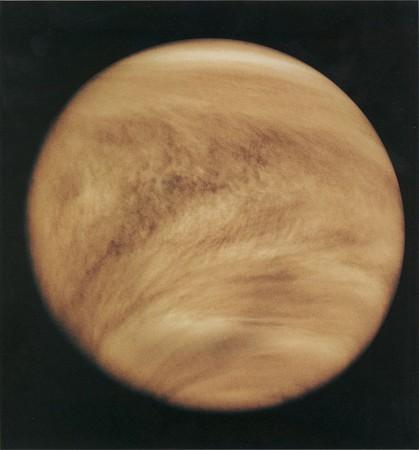
Venus has a rather strange spin and so time itself on the planet, the closest neighbour to Earth is rather strange. The planet is almost the same size as Earth, but its atmosphere is a lot thicker.
Venusian air is so thick that its raging winds push the atmosphere around the planet faster than the planet itself. This has been found to cause the atmosphere to push against the planet and affect its spin as well. The atmosphere in Venus is effectively shortening the days by making it spin faster, a new study has found, reports ScienceNews.
Atmospheric winds travel at the rate of about 100 metres per second on Venus and this is enough speed to cause a push against mountains on one side and cause suction on the other. These effects are spread out so widely across the entire planet that it is losing two minutes each "Venus day". While that seems like a lot of lost time, the report mentions that Venus spins really slow.
One day on Venus is about 243 Earth days. The measurement is not precise and often varies by up to seven minutes and it could be because of the atmosphere's effect on the planet, says the report. Venus' atmosphere rotates around the planet once every four Earth days or so. Also, the Sun's gravity could possibly slow the planet's rotation back down. This push and pull are completely throwing time off whack on Venus.
This effect could also explain the waves that were spotted in the atmosphere of Venus, they were first observed by Japanese Space Agency's (JAXA) Akatsuki spacecraft in 2015. These waves were about 10,000 km long, and stretched out over Venus' cloudtops.
Waves like these on Earth are often observed over mountaintops, where winds wash over the peaks, however, they are quickly broken up and dissipated by opposing winds, explains the report. With Venusian atmosphere spinning a lot faster than the planet itself, these waves are sustained much longer there.
"Venus is the closest thing to Earth that we know of," says UCLA planetary scientist Thomas Navarro, "and yet its hot, thick, toxic atmosphere makes it utterly alien. We'd like to know what's inside."
















